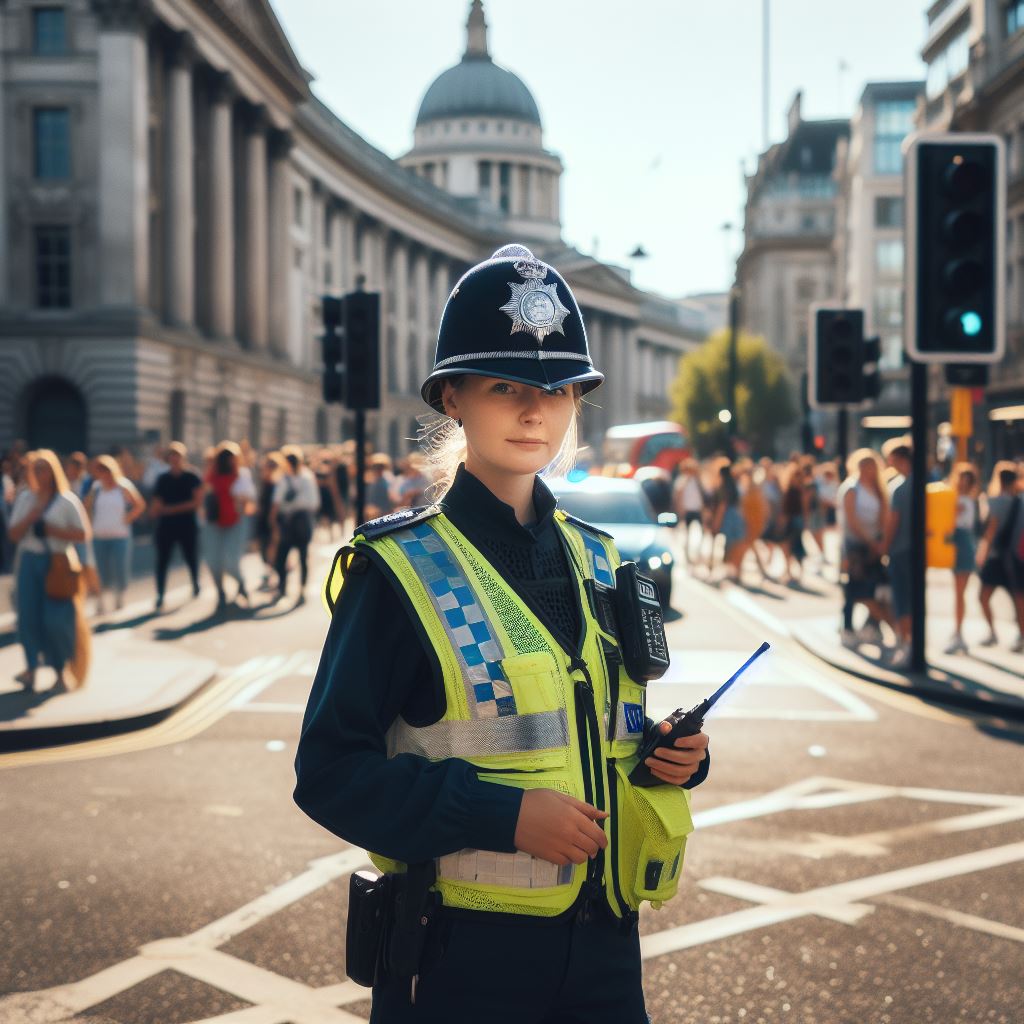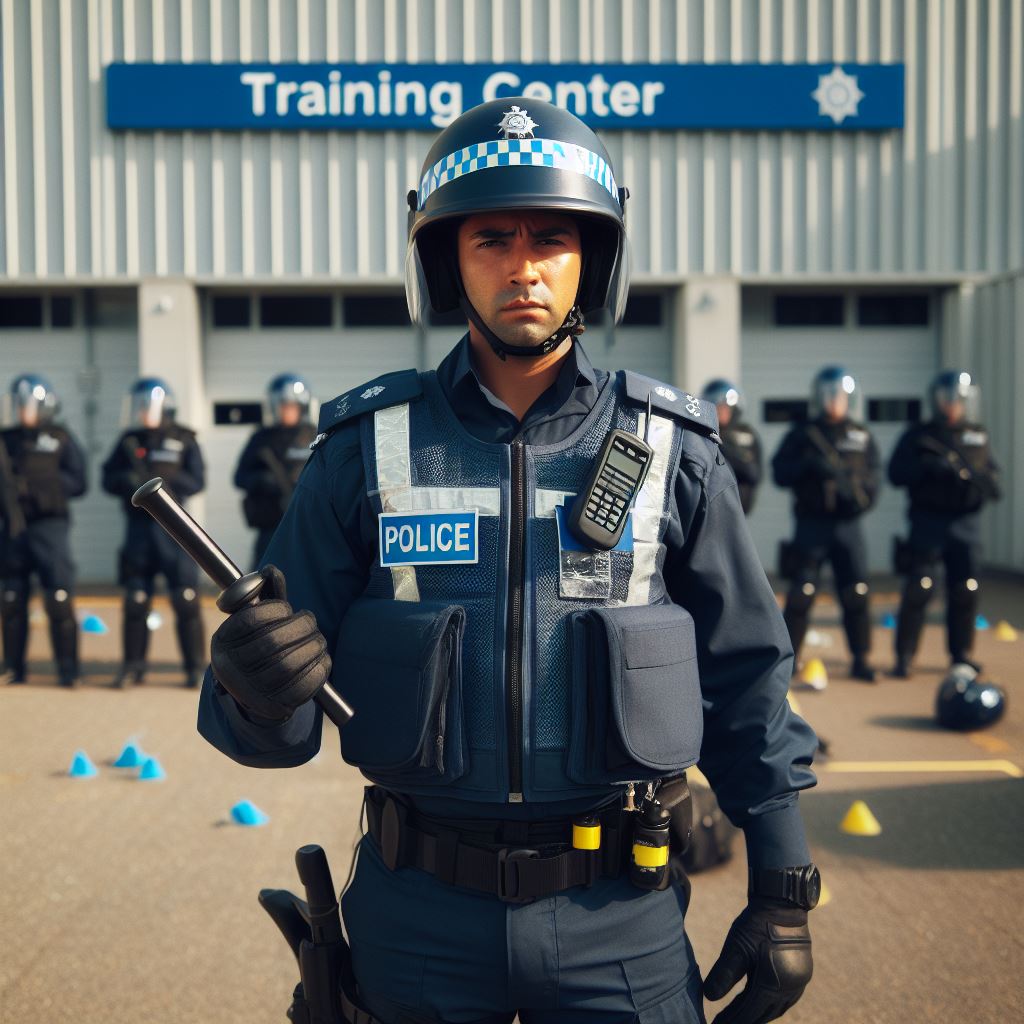Introduction
In the intricate tapestry of global affairs, diplomats emerge as indispensable architects of stability, wielding strategic finesse in navigating through crises.
Diplomacy, a linchpin in international relations, assumes heightened importance in times of turmoil and uncertainty.
As crisis managers and negotiators, diplomats play a pivotal role in defusing tensions, fostering dialogue, and crafting solutions that transcend borders.
This section delves into the nuanced and challenging realm of the role undertaken by UK diplomats in international crises.
Before unraveling the specific contributions of UK diplomats, it is essential to comprehend the broader context of diplomacy’s significance.
Diplomats, by virtue of their positions, are entrusted with the responsibility of not only representing their nation but also engaging in complex negotiations that have far-reaching implications for global stability.
As we embark on this exploration, the focus turns toward the unique contributions of UK diplomats in navigating and mitigating international crises.
Their role extends beyond mere representation, encompassing mediation, conflict resolution, and the delicate art of fostering cooperation in times of adversity.
By shedding light on the intricacies of this diplomatic endeavor, we seek to appreciate the nuanced and pivotal function that UK diplomats assume in the face of global challenges.
Historical background of UK diplomacy
Overview of the UK’s history as a leading diplomatic power
The United Kingdom has a rich history as a leading diplomatic power, with an extensive influence on the global stage.
As the birthplace of modern diplomacy, the UK has played a pivotal role in shaping international relations.
One significant aspect of UK diplomacy is its involvement in major international crises throughout history.
From the two World Wars to the Cold War and beyond, the UK has been at the forefront of diplomatic efforts to resolve conflicts.
Involvement in major international crises
- The First World War: The UK’s diplomacy played a crucial role in mobilizing allies and negotiating peace treaties.
- The Second World War: Through diplomatic negotiations and alliances, the UK played a vital role in defeating Nazi Germany.
- The Cold War: As one of the leading Western powers, the UK’s diplomacy contributed to the containment of communism and arms control.
- The Falklands War: The UK’s diplomatic efforts ensured the restoration of sovereignty over the Falkland Islands.
- Northern Ireland Conflict: The UK diplomat’s engagement in peace talks led to the Good Friday Agreement, bringing an end to decades of violence.
- The Gulf War: The UK diplomat’s role in building international coalitions and diplomatic negotiations helped liberate Kuwait.
- The Kosovo War: UK diplomacy supported NATO’s intervention to end ethnic cleansing and bring stability to the region.
- The Iraq War: The UK’s diplomatic involvement in the decision to invade Iraq remains a topic of controversy.
- The Syrian Civil War: UK diplomats have been actively engaged in peace talks, humanitarian aid, and supporting opposition groups.
- The Brexit Negotiations: The UK’s diplomats have been leading negotiations to redefine the country’s relationship with the European Union.
These examples highlight the UK’s consistent involvement in major international crises, displaying the country’s commitment to global stability and conflict resolution.
UK diplomats have been instrumental in negotiations, peacekeeping missions, and humanitarian efforts, earning the country international respect and influence.
With the changing dynamics of global politics, the role of UK diplomats continues to evolve. They face new challenges and the need to navigate complex geopolitical landscapes.
However, the historical background of UK diplomacy serves as a strong foundation for future diplomatic endeavors, ensuring the UK’s continued presence on the global diplomatic stage.
Understanding the role of UK diplomats in international crises
Primary responsibilities of UK diplomats during times of crisis
- Represent the UK government’s interests and protect the country’s national security.
- Engage in diplomatic negotiations to de-escalate conflicts and find peaceful resolutions.
- Provide diplomatic support and assistance to UK citizens affected by the crisis.
- Advocate for UK’s position and interests in international organizations and forums.
- Coordinate with other government agencies to ensure a comprehensive and cohesive response to the crisis.
The role of UK diplomats in collecting and analyzing intelligence
- Gather information using diplomatic channels, contacts, and open sources to understand the nature and dynamics of the crisis.
- Collaborate with intelligence agencies to gather classified information and assess the potential risks and threats associated with the crisis.
- Analyze the collected intelligence to provide accurate and timely assessments to policymakers.
- Share intelligence with foreign allies and partners to foster cooperation and develop a common understanding of the crisis.
- Use intelligence to inform diplomatic strategies and decisions during crisis management.
The role of UK diplomats in establishing and maintaining diplomatic relationships with other countries
- Engage in diplomatic dialogue with foreign counterparts to build trust, understanding, and cooperation.
- Negotiate and sign agreements or treaties related to the crisis, such as peace accords or humanitarian aid arrangements.
- Represent the UK in multilateral forums and facilitate diplomatic discussions among various stakeholders involved in the crisis.
- Provide diplomatic support to other UK government agencies involved in crisis response and management.
- Efficiently communicate the UK’s positions, concerns, and priorities to foreign governments to influence decision-making processes.
In general, UK diplomats have crucial responsibilities during international crises.
They represent the UK’s interests, collect and analyze intelligence, and establish diplomatic relationships to navigate through challenging times.
Their role is essential in promoting peace, protecting national security, and resolving conflicts effectively.
Read: UK Civil Service Pension Schemes
Case studies of UK diplomats in recent international crises
In recent international crises, UK diplomats played pivotal roles, exemplified by involvement in conflicts like the Syrian civil war.
They prioritized promoting diplomatic solutions and aiding civilians.
Additionally, in natural disasters like the 2010 Haiti earthquake, diplomats provided humanitarian aid and collaborated with international organizations for relief.
Strategies employed varied, focusing on diplomacy, negotiation, and peace support in conflicts.
For natural disasters, immediate relief and long-term recovery coordination took precedence.
Diplomats encountered diverse challenges, navigating complex power dynamics and overcoming barriers for effective aid distribution.
Despite challenges, UK diplomats achieved significant successes, contributing to ceasefires, peace agreements, and preventing further bloodshed in conflicts.
In natural disasters, their coordinated response efforts saved lives and rebuilt communities.
However, acknowledging that not all crises have simple solutions is crucial.
Some conflicts witnessed stalled diplomatic negotiations, leading to prolonged violence.
Similarly, in certain natural disasters, extensive destruction and limited resources posed challenges for recovery.
These situations underscore the intricate nature of international crises and the limitations of diplomatic efforts alone.
Nevertheless, UK diplomats persist in their critical roles, mitigating crisis impact and fostering international cooperation.
Read: Navigating Cultural Differences: Tips from UK Diplomats
The importance of effective communication and negotiation skills
Effective Communication and Negotiation Skills: A Key Role for UK Diplomats in International Crises
Effective communication and negotiation skills play a crucial role in the work of UK diplomats during international crises.
These skills are not only valuable for establishing diplomatic relations, but also for resolving conflicts and maintaining peace.
In this blog section, we will emphasize the significance of these skills, discuss the complexities of dealing with multiple stakeholders and conflicting interests.
And highlight the need for diplomats to be persuasive and diplomatic in their approach.
The Significance of Effective Communication and Negotiation Skills
Effective communication is essential for diplomats to convey their messages clearly and build trust among different parties involved in an international crisis.
Through open dialogue and active listening, diplomats can seek common ground and work towards mutually beneficial solutions.
Negotiation skills enable diplomats to find compromises, bridge gaps, and promote reconciliation.
Furthermore, effective communication and negotiation skills aid in the dissemination of accurate information.
This is particularly important in crisis situations, where misinformation and misinterpretation can escalate tensions and hinder diplomatic efforts.
Diplomats must possess the ability to disseminate factual, concise, and persuasive messages to mitigate conflicts and foster cooperation.
The Complexities of Dealing with Multiple Stakeholders and Conflicting Interests
During international crises, diplomats are faced with the challenge of managing diverse stakeholders with varying interests and priorities.
These stakeholders may include governments, international organizations, non-state actors, and affected communities.
Each party brings its own agenda, making negotiations complex and time-consuming.
Diplomats must navigate through these complexities by understanding the needs and concerns of each stakeholder.
They need to balance conflicting interests and find common ground where possible.
Skilled diplomats are adept at mediating between different parties, building trust, and facilitating dialogue to reach agreements that satisfy all stakeholders involved.
The Need for Diplomats to Be Persuasive and Diplomatic in Their Approach
UK diplomats tasked with resolving international crises must possess strong persuasive and diplomatic skills. Persuasion is essential when attempting to influence the opinions and decisions of other parties involved.
By presenting compelling arguments and showcasing the benefits of cooperation, diplomats can persuade stakeholders to work towards peaceful resolutions.
Personalized UK Career Consulting
Receive tailored career guidance designed just for you. Get actionable steps and expert support to boost your career in 1-3 days. Take control of your career now.
Get StartedDiplomacy, on the other hand, encompasses the art of tactful and respectful communication. Diplomats must remain calm, composed, and respectful, even in highly charged situations.
By adopting a diplomatic approach, they can encourage constructive dialogue, maintain trust, and ultimately facilitate the resolution of international crises.
Ultimately, effective communication and negotiation skills are indispensable for UK diplomats in international crises.
These skills allow diplomats to convey messages, build trust, and find common ground.
Diplomats must navigate the complexities of dealing with multiple stakeholders and conflicting interests while being persuasive and diplomatic in their approach.
By honing these skills, diplomats can effectively address international crises, promote stability, and contribute to global peace and security.
Read: Civil Service vs Private Sector: UK
Collaboration with other countries and international organizations
In times of international crises, collaboration between UK diplomats and their counterparts from other countries is paramount.
Through the establishment of fruitful partnerships, diplomatic efforts can be enhanced, and more effective resolutions can be achieved.
Importance of collaboration between UK diplomats and counterparts from other countries
The importance of collaboration between UK diplomats and their counterparts from other countries cannot be overstated.
By working together, diplomats can pool their expertise, resources, and diplomatic networks to address crises more holistically.
Firstly, collaboration enables diplomatic efforts to be more comprehensive. Each country has its own unique perspectives, experiences, and approaches in dealing with crises.
By engaging with counterparts from other countries, UK diplomats gain valuable insights and fresh perspectives, enabling them to devise more effective strategies in crisis management.
Moreover, collaboration enhances the credibility and legitimacy of diplomatic initiatives.
International crises often require coordinated responses, and by working together, diplomats demonstrate unity and solidarity towards resolving these challenges.
This not only strengthens the diplomatic efforts but also promotes trust and cooperation among nations.
Furthermore, collaborating with counterparts from other countries expands the diplomatic reach.
By tapping into their networks and connections, UK diplomats can access valuable information, establish crucial contacts, and navigate complex political landscapes more effectively.
Building bridges with other nations enhances the UK’s diplomatic influence and facilitates effective crisis resolution.
Role of international organizations in facilitating diplomatic efforts during crises
International organizations, such as the United Nations (UN), play a crucial role in facilitating diplomatic efforts during crises.
These organizations provide platforms for multilateral discussions, coordination, and cooperation.
Firstly, international organizations serve as neutral mediators.
In times of crises, where tensions and conflicts are heightened, these organizations can act as intermediaries, facilitating dialogues and negotiations between different parties.
By offering a neutral ground, they create opportunities for peaceful resolutions and prevent further escalations.
Additionally, international organizations provide a platform for information sharing and coordination.
Through conferences, forums, and regular updates, diplomats can exchange knowledge, share best practices, and coordinate their actions.
This collective effort ensures that resources are optimized, duplicate efforts are minimized, and a cohesive response is achieved, thereby increasing the chances of successful crisis resolution.
Moreover, international organizations can mobilize resources and provide humanitarian assistance during crises.
They have the capacity to coordinate the delivery of aid, ensuring that it reaches those in need efficiently and effectively.
In partnership with UK diplomats and other stakeholders, international organizations contribute to the stabilization and rebuilding of affected regions.
Benefits of shared knowledge and resources in resolving international crises
The benefits of shared knowledge and resources in resolving international crises are vast. Collaborative efforts enable diplomats to tap into a broader range of expertise, insights, and solutions.
Firstly, shared knowledge enhances problem-solving capabilities.
By combining the expertise of UK diplomats with that of their counterparts from other countries, innovative and effective solutions can be identified.
The diversity of perspectives ensures a comprehensive understanding of the crisis and facilitates the identification of creative approaches to resolve it.
Furthermore, shared resources amplify the impact of diplomatic efforts.
In times of crises, resources are often scarce, and the demands are high.
By pooling together resources, both financial and material, diplomats can maximize their impact and provide more substantial support to affected regions.
This collaboration ensures an efficient allocation of resources and prevents duplication of efforts.
Moreover, shared knowledge and resources cultivate trust and mutual understanding.
Diplomatic cooperation fosters relationships built on trust, goodwill, and mutual respect.
Through collaborative efforts, diplomats develop a deeper understanding of each other’s cultures, priorities, and challenges.
This understanding lays the foundation for long-term partnerships, strengthening international relations beyond the immediate crisis resolution.
Overall, collaboration between UK diplomats and their counterparts from other countries, as well as international organizations, is crucial in resolving international crises.
Through collaboration, diplomats can benefit from shared knowledge, resources, and networks, enabling more effective crisis management and contributing to long-term peace and stability.
Read: Interview Tips for UK Civil Service

Gain More Insights: Career Paths: How to Become a Diplomat in the UK
Challenges Faced by UK Diplomats in Dealing with International Crises
Diplomats play a crucial role in representing their countries and safeguarding their interests in international crises.
However, they face numerous challenges and drawbacks in effectively navigating these complex situations.
Your Dream Job Starts with a Perfect CV
Get a tailored CV and cover letter that captures your unique strengths and stands out in your industry. Let us help you make an unforgettable first impression.
Get StartedThe various challenges faced by UK diplomats in dealing with international crises
- Political Factors: Diplomats often encounter political challenges while dealing with international crises. This can include conflicting interests, power dynamics, and geopolitical rivalries.
- Cultural Factors: Understanding cultural nuances is crucial in diplomacy, but it can also be a challenge. Different cultures have varying customs, beliefs, and communication styles, which may hinder effective negotiation and cooperation.
- Bureaucratic Factors: Diplomats can face bureaucratic obstacles due to the complex decision-making processes within governments. Bureaucracy can slow down diplomatic efforts and create difficulties in decision-making and implementation.
- Time Constraints: International crises often require quick and decisive action. Diplomats must work under tight timelines, which can limit their ability to thoroughly analyze situations and explore all possible solutions.
- Public Opinion: Diplomatic efforts can be influenced by public opinion, both domestically and internationally. Sudden shifts in public sentiment can complicate diplomatic negotiations and impact the effectiveness of diplomats’ strategies.
Limitations and Constraints Faced by UK Diplomats in International Crises
- Limited Resources: Diplomatic missions may face resource constraints, including financial limitations and inadequate staffing, which can hinder their ability to effectively address international crises.
- Legal Constraints: Diplomats must operate within legal frameworks, including international law and treaty obligations. These constraints may limit their options and restrict the extent of their actions in resolving crises.
- Security Risks: Diplomats operating in crisis zones face significant security risks. Their safety can be compromised by violence, terrorist threats, or hostile environments, which can impede their ability to fulfill their diplomatic duties.
- Hostile Governments: In some cases, diplomats may find themselves dealing with hostile governments that refuse to engage in constructive dialogue or negotiations. This creates additional challenges in resolving crises through diplomatic means.
- Limited Influence: The influence of diplomats is often limited by the power dynamics and interests of other actors involved in the crisis. Diplomats may face difficulties in persuading stakeholders to accept diplomatic solutions or compromises.
Drawbacks and Implications of Unsuccessful Diplomatic Efforts
- Escalation of conflicts: When diplomatic efforts fail, conflicts may escalate, leading to an increase in violence and instability.
- Loss of credibility: Unsuccessful diplomatic efforts can damage a country’s credibility and reputation on the international stage, making future negotiations more challenging.
- Economic repercussions: International crises can have economic implications. Unsuccessful diplomacy may result in trade disruptions, economic sanctions, or reduced investment opportunities.
- Humanitarian consequences: Inadequate diplomatic efforts may prolong humanitarian crises, with devastating consequences for affected populations.
- Strained international relations: A failure in diplomacy can strain bilateral and multilateral relations, making future cooperation and collaboration more difficult.
In short, UK diplomats face numerous challenges and drawbacks in their endeavors to handle international crises.
Political, cultural, and bureaucratic factors, along with limitations and constraints, can impede their effectiveness.
Unsuccessful diplomatic efforts can have serious drawbacks and implications, ranging from escalating conflicts to straining international relations.
Despite these challenges, diplomats continue to play a crucial role in mitigating crises and promoting global stability.
Uncover the Details: UK Politicians and International Diplomacy
Learn More: Impact of Brexit on UK Civil Servants
Conclusion
In revisiting the dynamic role of UK diplomats in international crises, it is evident that their contributions extend far beyond conventional expectations.
From navigating the intricacies of conflicts, such as the Syrian civil war, to actively engaging in disaster response.
Exemplified by their efforts during the 2010 Haiti earthquake, UK diplomats have consistently demonstrated resilience and strategic acumen.
Emphasizing the significance of their work becomes essential when considering the broader implications on global stability and security.
These diplomats function as pillars, not only in preventing further bloodshed and promoting peace agreements in conflicts but also in orchestrating immediate relief and long-term recovery in the aftermath of natural disasters.
Their multifaceted role underscores the interconnectedness of international relations and the imperative of collaborative efforts in times of crises.
In the end the overarching importance of diplomacy in resolving international crises is paramount.
The nuanced and strategic approach adopted by UK diplomats exemplifies the potential for diplomatic endeavors to mitigate the impact of crises and foster a more secure and harmonious global landscape.
Their tireless efforts underscore the indispensable role of diplomacy in the pursuit of lasting solutions to complex global challenges.
[E-Book for Sale]
500 Cutting-Edge Tech Startup Ideas for 2024 & 2025: Innovate, Create, Dominate
$19.99 • 500 Tech Startup Ideas • 62 pages
You will get inspired with 500 innovative tech startup ideas for 2024 and 2025, complete with concise descriptions to help you kickstart your entrepreneurial journey in AI, Blockchain, IoT, Fintech, and AR/VR.




